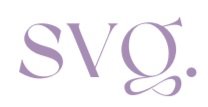How to Cultivate Financial Wellness (And Still Budget for Cafecito)
Photo by Content Pixie on Unsplash
Manifesting a life of abundance, early retirement, and unlimited cafecito starts with one thing: financial wellness.
As a Latina with a vision board full of travel dreams and almond milk lattes, I’ve realized that financial freedom isn’t just about numbers, it’s about intention. Just like sipping hot lemon water in the morning or catching up with your therapist, checking in with your financial health is essential for your overall wellness.
In this post, I’m sharing the exact money moves that helped me cultivate better financial wellness—without sacrificing joy. Whether your goal is to pay off debt, build savings, or just not feel panicked every time your car needs maintenance, I've got you covered.
What Is Financial Wellness?
Financial wellness means feeling in control of your money, managing debt, being prepared for the unexpected, and building a future that supports your values and lifestyle.
Think about it like this: financial wellness is your emergency fund catching you when your car battery dies, or your budget says “yes” to those Bad Bunny tickets in Puerto Rico—without the guilt.
When your finances are in order, you're less stressed, more confident, and free to enjoy life (including the almond milk upcharge for your latte).
Here are some tips that have actively helped me improve my financial wellness over time.
1. Start With a Realistic Budget
Creating a financial plan is the first step toward improving your financial well-being. Life has its fair share of expenses, and it’s important to take them into account. I swear by the 50/30/20 budgeting rule, which breaks your monthly income into three categories:
50% Needs: Rent, groceries, utilities, car payments.
30% Wants: Cafecito runs, brunches, streaming subscriptions, collectibles (hello Labubu fans).
20% Savings: Emergencies, investments, big goals.
Pro Tip: Use a budgeting app like Mint or a simple Google Sheet to track everything.
2. Prioritize Paying Off Debt
Debt can be a major source of stress, which impacts your mental health and financial freedom. Therefore, paying off debt is key when taking steps forward on your financial wellness journey. Here are a couple of methods to get yourself out of debt and on a healthier financial path:
Snowball Method
List your debts from the lowest balance to the highest one. Every month, make your minimum payments to your debts and apply any extra cash towards the debt with the smallest balance. Pay off your smallest balances first to build momentum. Every win keeps you motivated.
High-Interest Method (Avalanche)
Focus on the debt with the highest interest rate to minimize long-term costs. Then move your way down to the debt with the lowest interest rate. Make the minimum payments on all of your debt and add extra cash to the debt with the highest interest rate. Continue this method until all of your debts are paid.
3. Build Your Emergency Fund
One of the biggest things life has taught me is that not everything always goes accordingly to plan. Life happens—unexpected vet bills, family emergencies, or surprise job changes. An emergency fund is your financial buffer.
Goal: Save at least 3–6 months' worth of living expenses.
Open a separate high-yield savings account
Automate a portion of your paycheck to transfer directly
Start small—$25 a week adds up over time
4. Plan for the Future You Want
Sure, retirement is important, but your dream vacay to Seville or a beachfront condo counts too. Financial wellness is a lifelong journey. There is no final destination to arrive at. It is all about developing healthy habits that help you reach your short-term and long-term goals.
Start Here:
Contribute to your 401(k) or Roth IRA
Open a HYSA for short-term goals like travel or down payments
Explore beginner-friendly investment platforms like Ellevest
5. Track and Review Your Finances Regularly
Think of this like a “money date.” Block time once a month to:
Check your accounts and spending
Adjust your values-based budget
Set goals
Celebrate small wins
Money dates are an act of self-care. Pair it with a latte, or a glass of wine, and your favorite playlist.
6. Build Your Financial Literacy
Knowledge is power, and it turns out, it also reduces financial anxiety. Financial wellness isn’t just about what you do; it's about what you know. Educating yourself on your finances helps to increase your financial literacy.
Read personal finance blogs like Her First 100K
Join online communities and group chats
Ask questions, share tips, and normalize money conversations
Your Money Should Work For You
Empowering yourself with financial knowledge helps you feel more secure in your finances. Financial wellness isn’t about perfection—it’s about progress. By setting up systems and embracing mindful spending, you can live your best cafecito life and stay on track toward cultivating financial wellness.
Remember: The goal isn’t just wealth. It’s peace, security, and freedom.
*Gentle Reminder
The insights shared in this article are for informational and educational purposes only and are not intended as financial, investment, or legal advice. Everyone’s financial journey is unique, and we encourage you to consult with a qualified financial advisor, accountant, or legal professional before making decisions related to your money, investments, or planning.
The views expressed here are those of the author and do not represent official financial guidance. Mentions of any products, services, or strategies are for informational purposes only and are not endorsements by SVG Living, LLC (“svg living”).
By engaging with this content, you acknowledge that svg living is not responsible for financial outcomes, claims, or losses that may result from your use of or reliance on the information provided. Always make choices that align with your goals, values, and trusted professional advice.

